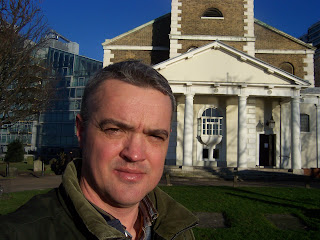
Do you want to hurt someone because he or she hurt you? Do you need to get even? Are you seeking revenge?
You might think the best revenge is to destroy your enemies. Make them regret ever messing with you. Prove you are more powerful.
For example, Peter and his wife Samantha owned the best restaurant in town. Yet when Peter caught Samantha having an affair, he not only asked for a divorce, he decided to get even. He made sure they fought over every tiny detail of the divorce for three years. In the end, their lawyers had new Mercedes; Peter and Samantha had nothing.
Fighting an enemy can take over your life and cost you enormous amounts of money and time. For example, you get into a car accident, hurt your back and sue the automobile company for an unsafe design. You then spend years proving you are a victim and suffering, when instead, you should be working on your success.
Some people think the best way to get revenge is with violence. They throw a rock, punch a nose or start a war. Yet if you use violence for revenge, you hurt innocent people. You destroy lives. You might even end in up in jail.
So what is the best way to get revenge?
"Sometimes others seek to crush one down, to make nothing out of one’s hopes and dreams, one’s future and one, himself.
"By ridicule and many other means, another who is evil-intentioned toward one can try to bring about one’s decline.
"It is sometimes necessary to handle such directly. But there is a long range handling that seldom fails.
"The real handling of such a situation and such people, the real way to defeat them is to flourish and prosper.
"Oh, yes, it is true that such people, seeing one improve his lot*, can become frantic and attack all the harder. The thing to do is handle them if one must but don’t give up flourishing and prospering for that is what such people want you to do.
If you flourish and prosper more and more, such people go into apathy** about it; they can give it up completely.
"And that is my wish for you: flourish and prosper!" -- L. Ron Hubbard from The Way to Happiness (*lot: one’s destiny or condition in life) (**apathy: complete failure, no feeling, no emotion)
10 Benefits of Getting Revenge by Flourishing and Prospering
1. You feel powerful, not like a victim.
2. Your enemy gives up.
3. Your personal image is improved.
4. You do not waste your time or money in a fight you might lose.
5. You are more motivated to be successful.
6. Bad guys cannot pull you down to their level of evil.
7. Once you defeat your enemies by succeeding, they do not try again. Of course, if they try again, you simply flourish and prosper more than ever!
8. Potential enemies see how you succeed, despite others' opposition, and don't even try.
9. Thanks to an enemy, you end up with more money, more control and more power.
10. You are much, much happier.
Learn more about "The Way to Happiness" at www.twth.org.
--------------------------------------------------------------------------------
Provided by TipsForSuccess.org as a public service to introduce the technology of L. Ron Hubbard to you.
Copyright © 2010 TipsForSuccess.org. All rights reserved. Grateful acknowledgment is made to L. Ron Hubbard Library for permission to reproduce selections from the copyrighted works of L. Ron Hubbard.
You might think the best revenge is to destroy your enemies. Make them regret ever messing with you. Prove you are more powerful.
For example, Peter and his wife Samantha owned the best restaurant in town. Yet when Peter caught Samantha having an affair, he not only asked for a divorce, he decided to get even. He made sure they fought over every tiny detail of the divorce for three years. In the end, their lawyers had new Mercedes; Peter and Samantha had nothing.
Fighting an enemy can take over your life and cost you enormous amounts of money and time. For example, you get into a car accident, hurt your back and sue the automobile company for an unsafe design. You then spend years proving you are a victim and suffering, when instead, you should be working on your success.
Some people think the best way to get revenge is with violence. They throw a rock, punch a nose or start a war. Yet if you use violence for revenge, you hurt innocent people. You destroy lives. You might even end in up in jail.
So what is the best way to get revenge?
"Sometimes others seek to crush one down, to make nothing out of one’s hopes and dreams, one’s future and one, himself.
"By ridicule and many other means, another who is evil-intentioned toward one can try to bring about one’s decline.
"It is sometimes necessary to handle such directly. But there is a long range handling that seldom fails.
"The real handling of such a situation and such people, the real way to defeat them is to flourish and prosper.
"Oh, yes, it is true that such people, seeing one improve his lot*, can become frantic and attack all the harder. The thing to do is handle them if one must but don’t give up flourishing and prospering for that is what such people want you to do.
If you flourish and prosper more and more, such people go into apathy** about it; they can give it up completely.
"And that is my wish for you: flourish and prosper!" -- L. Ron Hubbard from The Way to Happiness (*lot: one’s destiny or condition in life) (**apathy: complete failure, no feeling, no emotion)
10 Benefits of Getting Revenge by Flourishing and Prospering
1. You feel powerful, not like a victim.
2. Your enemy gives up.
3. Your personal image is improved.
4. You do not waste your time or money in a fight you might lose.
5. You are more motivated to be successful.
6. Bad guys cannot pull you down to their level of evil.
7. Once you defeat your enemies by succeeding, they do not try again. Of course, if they try again, you simply flourish and prosper more than ever!
8. Potential enemies see how you succeed, despite others' opposition, and don't even try.
9. Thanks to an enemy, you end up with more money, more control and more power.
10. You are much, much happier.
Learn more about "The Way to Happiness" at www.twth.org.
--------------------------------------------------------------------------------
Provided by TipsForSuccess.org as a public service to introduce the technology of L. Ron Hubbard to you.
Copyright © 2010 TipsForSuccess.org. All rights reserved. Grateful acknowledgment is made to L. Ron Hubbard Library for permission to reproduce selections from the copyrighted works of L. Ron Hubbard.





































